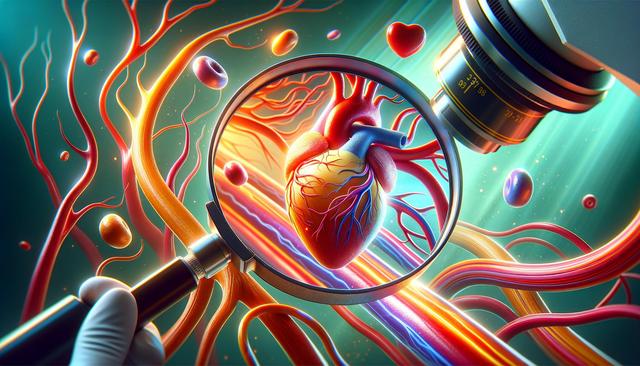Congenital Adrenal Hyperplasia In Females
Congenital adrenal hyperplasia (CAH) in females presents unique challenges that require careful management and understanding.

Understanding Congenital Adrenal Hyperplasia in Females
Congenital adrenal hyperplasia (CAH) in females is a group of inherited disorders affecting the adrenal glands, leading to the production of abnormal levels of hormones such as cortisol and aldosterone. Most commonly, CAH is caused by a deficiency of the enzyme 21-hydroxylase, which is crucial for hormone synthesis. In females, CAH can result in varying degrees of virilization due to excess androgen production. Symptoms can range from ambiguous genitalia at birth to irregular menstrual cycles and fertility challenges later in life. Early diagnosis and appropriate treatment are essential in managing CAH and improving long-term outcomes.
Symptoms and Early Signs in Females with CAH
The symptoms of CAH in females can vary depending on the severity of the enzyme deficiency. Classic CAH, the more severe form, often presents at birth with noticeable signs, while non-classic CAH may not become apparent until adolescence or adulthood. Common symptoms include:
- Ambiguous genitalia in newborns
- Early development of pubic hair
- Rapid growth during childhood but shorter final height
- Irregular menstrual periods
- Severe acne
- Infertility issues
Recognizing these signs early is crucial for timely intervention. Pediatricians, endocrinologists, and gynecologists play key roles in diagnosing and managing the condition through physical examinations, hormone level testing, and genetic analysis.
Diagnosis and Testing for CAH in Females
Diagnosing CAH in females typically involves a combination of clinical evaluation, biochemical testing, and genetic studies. Newborn screening programs have become instrumental in detecting classic CAH early, allowing for prompt treatment. Diagnostic procedures often include:
- Measurement of 17-hydroxyprogesterone levels in the blood
- ACTH stimulation tests to evaluate adrenal function
- Genetic testing to confirm mutations in the CYP21A2 gene
In cases where CAH is diagnosed later in life, such as non-classic CAH, symptoms like irregular periods or infertility often prompt further investigation. Imaging studies, such as pelvic ultrasounds, may also be used to assess reproductive anatomy in affected individuals.
Treatment Options and Management Strategies
Managing CAH in females typically involves hormone replacement therapy to correct cortisol and aldosterone deficiencies. Glucocorticoids, such as hydrocortisone, are commonly prescribed to reduce excessive androgen production. In some cases, mineralocorticoid replacement is necessary to maintain electrolyte balance. Treatment goals include:
- Normalizing hormone levels
- Promoting normal growth and development
- Preventing adrenal crises
- Maintaining reproductive health
For females with significant genital ambiguity, surgical options may be considered, although decisions regarding surgery should be made carefully and involve multidisciplinary teams. Psychological support is also a vital component of comprehensive care, helping individuals and families cope with the emotional and social aspects of CAH.
Living with CAH: Long-Term Considerations for Females
Living with CAH as a female involves ongoing medical care and lifestyle adjustments. Regular monitoring of hormone levels, growth patterns, and bone density is important to manage the condition effectively. Some long-term considerations include:
- Fertility support and reproductive counseling
- Mental health care to address body image and emotional well-being
- Education about stress dosing during illness or surgery to prevent adrenal crises
- Adherence to medication regimens to maintain hormonal balance
With proper management, many females with CAH lead healthy, fulfilling lives. Building a strong healthcare team and staying informed about the condition are key strategies for navigating the challenges associated with CAH.
Conclusion
Congenital adrenal hyperplasia in females is a complex condition that requires a thoughtful and multidisciplinary approach to care. Early diagnosis, effective treatment, and continuous support can significantly improve outcomes for affected individuals. By fostering awareness and encouraging proactive healthcare management, females with CAH can achieve greater well-being and quality of life throughout their journey.